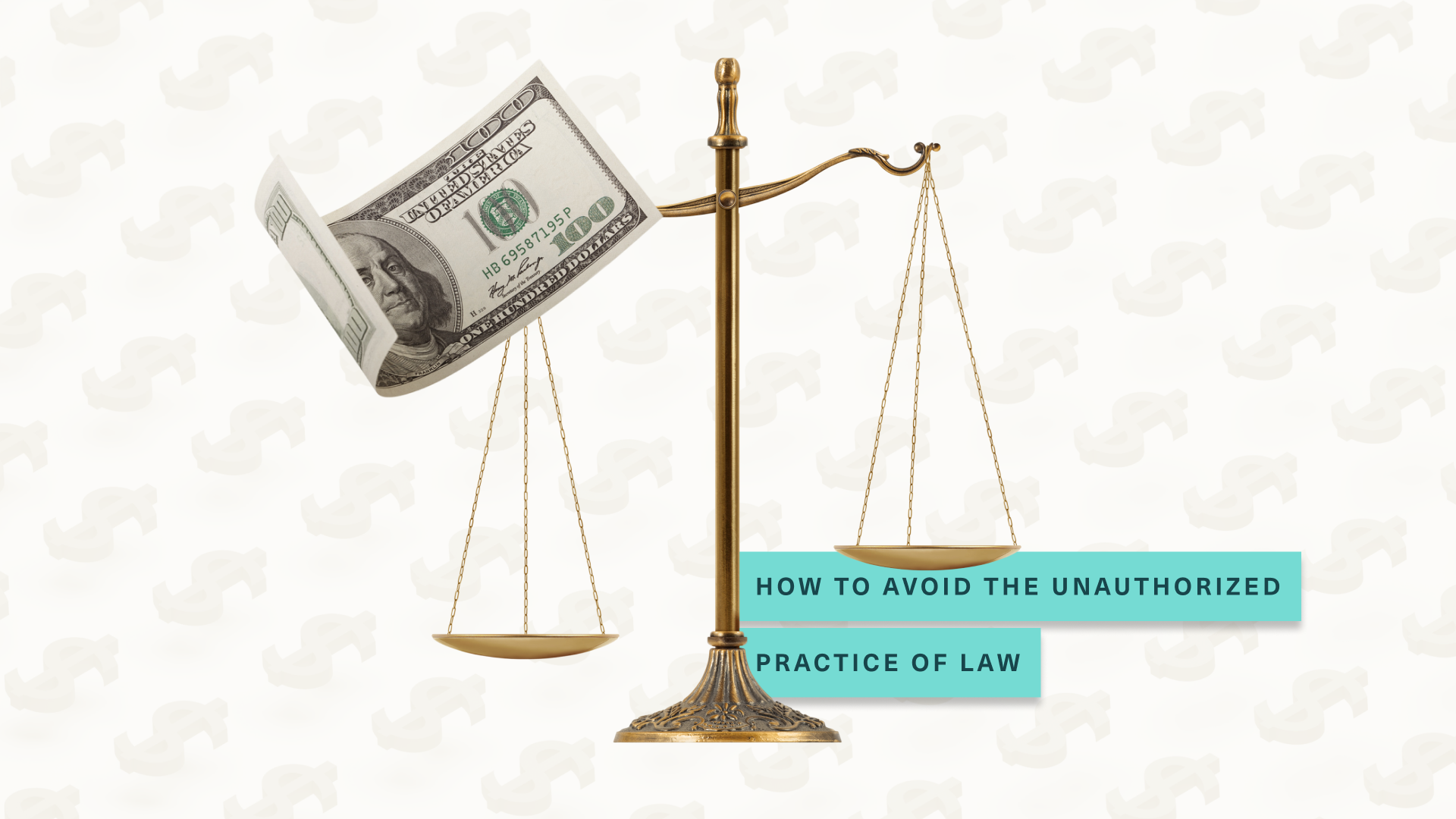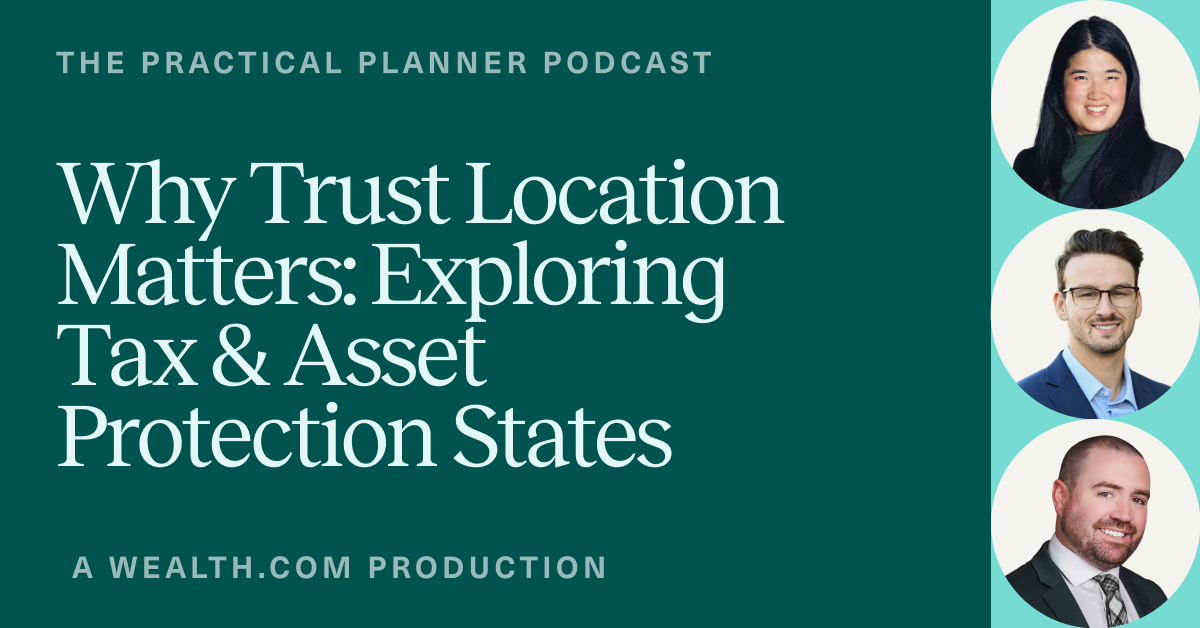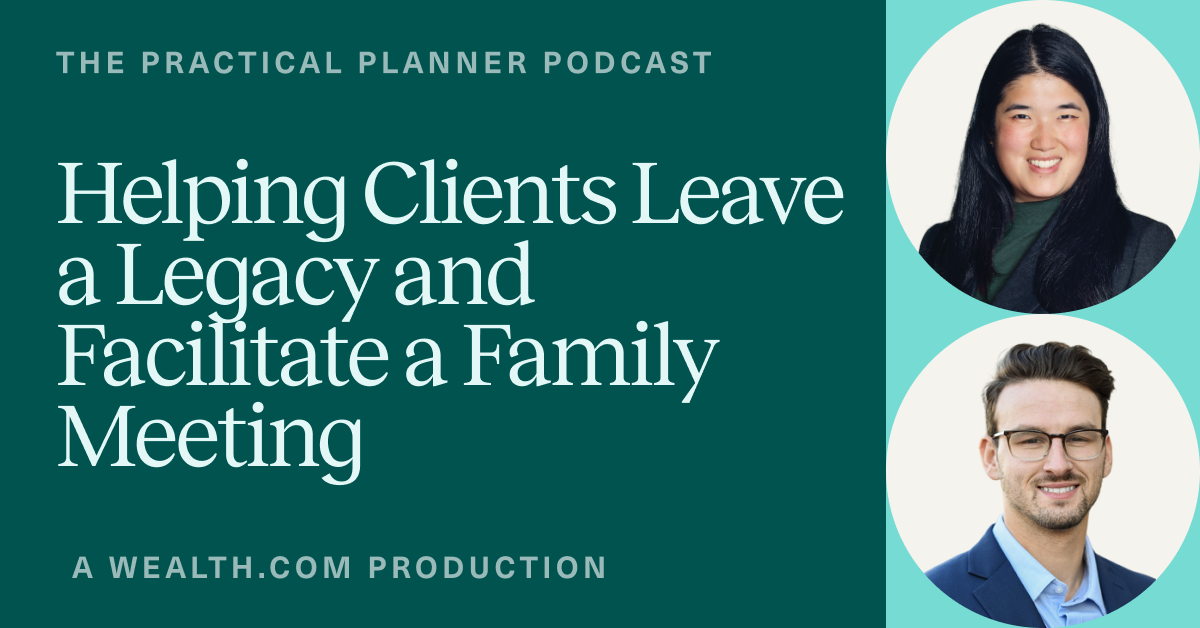Editor’s note: This article provides general information for financial professionals. It is not legal advice. Follow your firm’s policies and the rules in your state.
Estate planning touches money, family, health, and legacy. Clients delay it because it feels complex or emotional. Advisors who frame the conversation with care help clients act, build trust, and show real value, while staying well inside the boundaries that avoid the unauthorized practice of law. The key is simple. Educate and facilitate, do not give legal advice or draft legal instruments. Use Wealth.com to guide clients through a structured process so they can complete their plan, then coordinate with an attorney when legal advice is needed.
Why Communication Matters in Estate Planning
Clear messaging reduces anxiety and sets the right expectations about roles.
Guiding principles
- Lead with outcomes clients care about, such as clarity for family and reduced friction during stressful moments.
- State your role up front. You educate, organize, and coordinate through Wealth.com. You do not provide legal advice.
- Normalize the emotions, then make the next step simple.
- Use plain language, avoid legal jargon.
- Close with one concrete action, such as a scheduling link or a short intake.
Role clarity you can say verbatim
- “My role is education and coordination. You will complete your estate plan in Wealth.com. If any additional legal guidance is needed, we will involve an attorney.”
- “I can explain concepts in general terms. I cannot tell you which clauses to choose or interpret how a document would be enforced. During each step of the process, Wealth.com includes helpful educational guidelines.”
Adapting Your Message to Different Pricing Models
Each talk track below positions Wealth.com as the client’s tool, keeps you out of legal advice, and makes the next step easy.
1) Included at no additional cost
Goal
Celebrate added value, clarify roles, invite immediate action.
In‑meeting talk track
“Protecting family and reducing headaches are top priorities for you. We have added estate planning support to your service at no extra cost. You will complete your plan in Wealth.com using a guided experience. My team will help you prepare information, answer planning questions in general terms, and coordinate with an attorney if you choose to involve one. Let’s schedule your estate planning session.”
Follow‑up email line
“Your service now includes access to Wealth.com. You can start your intake here [Link]”
2) Optional, stand‑alone service
Goal
Offer a clear choice, define scope and price, keep control with the client.
In‑meeting talk track
“Given your goals for the kids and the house, a clear estate plan would reduce stress and keep decisions in your hands. We offer an optional service that uses the industry’s leading estate planning platform, Wealth.com, for a flat fee. You complete the plan in the platform. We handle preparation, education in general terms, and coordination. If you would like legal advice, we will loop in an attorney. Would you like to review scope, timeline, and fee so you can decide?”
Follow‑up email line
“Attached is a one‑page overview of our Wealth.com service. If you want to proceed, reply yes and we will schedule your kickoff.”
3) Firm‑wide fee increase
Goal
Be transparent, connect the change to outcomes, outline what improves.
In‑meeting talk track
“Beginning January 1, our planning fee will increase. The change ensures every client receives a complete estate planning process. You will complete your plan in Wealth.com with our help on preparation and coordination. We will review for financial alignment and connect with an attorney for legal questions. Here is what is included and how it benefits your family.”
Follow‑up email line
“Our updated fee schedule takes effect on January 1. Your service now includes access to Wealth.com, along with an annual check‑in on beneficiaries and key roles. Use this link to begin your intake.”
Leading With Value and Empathy
Use this conversation framework to keep discussions clear and compliant.
C‑A‑R‑E Framework
- Context. “Tell me what matters most for your family and how you want decisions handled.”
Align. “Estate planning supports those priorities and removes guesswork. I can explain the concepts in general terms.” - Roadmap. “We will use Wealth.com to guide you through discovery, decisions, and documents. You complete the plan in the platform.”
Engage. “Would you like to start with a short discovery session next week, or review an overview first?”
Plain‑language explanations
- Advance directive, “Instructions for medical care if you cannot speak for yourself.”
- Executor or personal representative, “The person who carries out your wishes.”
- Funding a trust, “Moving the right accounts and property into the trust so it works as intended.”
High‑empathy phrases that keep clients in control
- “At your pace, with your permission.”
- “We will take this one decision at a time.”
- “You decide who to involve. We will coordinate the process.”
UPL Guardrails: What Advisors Can Do and What They Must Avoid
Advisors can
- Educate clients on estate planning concepts in general terms.
- Help clients organize information and beneficiaries, and prepare for decisions.
- Facilitate client use of Wealth.com, including intake and next steps.
- Review financial alignment, such as titling and beneficiary coordination across accounts.
- Coordinate with the client’s attorney or refer the client to their attorney for legal questions. Wealth.com’s Attorney Partner Network is a nationwide network of vetted estate attorneys available to the platform’s users and financial advisors in all 50 states and US territories.
Advisors must not
- Provide legal advice, recommend specific legal clauses, or interpret how a document will be enforced.
- Draft legal language or modify legal provisions inside documents.
- Select a document type for the client in a way that constitutes legal advice.
- Represent that the advisor or the firm is providing legal services.
Red‑flag phrases to avoid and safer alternatives
- Avoid “We will draft your documents.” Use “You will complete your documents in Wealth.com.”
- Avoid “I recommend this clause.” Use “Here are common options and the trade‑offs at a high level. Your attorney can advise on the right clause for your situation.”
- Avoid “This language will protect you in court.” Use “For legal guidance or interpretation, please consult an attorney.”
Strengthening Client Relationships Through Estate Planning
Estate planning creates valuable touchpoints that go beyond portfolio reviews.
Operational tips
- Segment and prioritize. Life events such as a new child, home purchase, business sale, marriage, divorce, caregiving, or relocation are natural entry points.
- Standardize your workflow. Intake, education session, client completes plan in Wealth.com, execution and storage, annual check‑in.
- Clarify roles by title. Advisor educates and coordinates. Paraplanner prepares data. Attorney addresses legal advice.
- Document the value. Track estate planning milestones in your CRM and surface them during reviews.
- Nurture the next generation. Offer an onboarding session for adult children or trusted contacts that focuses on education and logistics.
Compliance tips
- Use template language for disclosures.
- Capture notes that confirm clients were advised to consult an attorney.
- Route legal questions to counsel promptly.
How technology helps
Wealth.com removes friction for clients and your team. Guided workflows organize information, keep everyone aligned, and make it easy for clients to complete their plan. Advisors stay focused on planning and coordination. Legal advice remains with attorneys.
Ready‑to‑Use Scripts and Snippets
Short opener for any meeting
“Before we wrap, I would like to spend five minutes on planning for life events. Estate planning keeps decisions in your hands. We use Wealth.com to make the process simple. I can explain the concepts and help you get started, and your attorney can address legal questions. Can we review next steps?”
Subject lines
- Estate planning made simple, here is your next step
- Your plan, your wishes, one easy process
- Add peace of mind to your financial plan
One‑sentence value statement
“Estate planning turns your values into clear instructions your family can follow, completed in Wealth.com with our help on education and coordination.”
Call to action choices
- “Schedule your estate planning kickoff.”
- “Complete this two‑minute intake in Wealth.com so we can personalize your plan.”
“Share the contact information for the person you would like to name in key roles.”
The Bottom Line
Great communication turns a sensitive topic into confident action. Whether estate planning is included, offered as an option, or introduced with a fee change, your message should highlight outcomes, clarify roles, and make the next step easy. Use Wealth.com to empower clients to complete their plan, keep legal advice with attorneys, and deliver a modern experience that clients appreciate.
Explore how Wealth.com helps advisors bring estate planning to every client. You can request a demo today.











